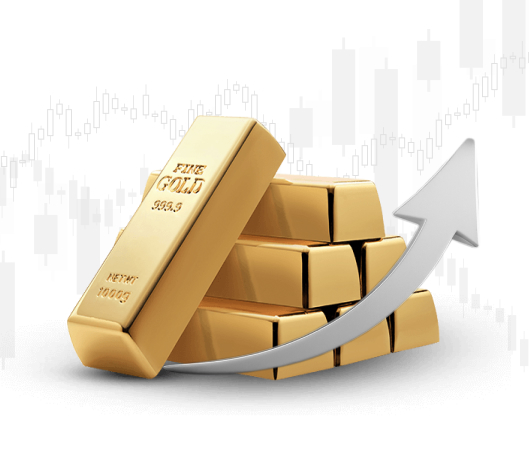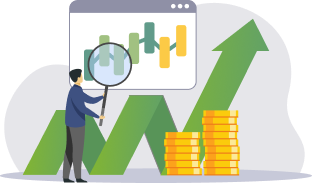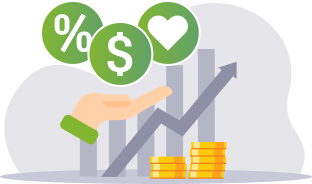- Perdagangan
- Pasar
- Trading Emas
Trading Emas Online - Gold
Gold has always been one of the most popular assets in the world. From being a traditional safe haven investment to a hedge against inflation, gold plays a key role in global markets.
Today, traders don’t need to physically buy and store gold to benefit from its price changes.
With Gold CFD Trading, you can speculate on gold prices, going long or short, without owning the metal itself. Trading Gold CFDs is an affordable way to trade the world's most trusted commodity.

Mencari Instrumen Perdagangan?
Sila pilih jenis platform dan akun
Online Gold Instruments CFD Trading
With online platforms, CFD gold trading has become accessible to retail traders worldwide. Instead of dealing with physical bars or futures contracts, you can trade gold CFDs directly from your trading account. With online platforms you can react quickly to price swings caused by market news, central bank decisions, or economic data.
For example, if the U.S. Federal Reserve signals higher interest rates, gold prices often fall. In such cases, CFD gold trading allows you to take a short position and profit from the decline. Similarly, if global uncertainty rises, you can go long on gold CFDs to capture upside moves.
What is Gold CFD Trading?
At its core, gold CFDs let you trade on the price movement of gold without owning the actual metal. A CFD is simply an agreement between you and your broker to exchange the difference in gold’s price from the moment you open the trade to when you close it.
Unlike buying physical gold, gold CFD trading gives you more flexibility. You can trade smaller amounts, use leverage, and access gold markets directly from your phone or computer.

How to Trade CFDs on Gold?
Trading gold CFDs is a simple process once you understand the steps. Here below are the steps you need to know to start CFD trading gold.
- Open a trading account – Choose a broker that offers gold CFDs and register for an account.
- Fund your account – Deposit funds to start trading. We offer several options which you can choose from.
- Analyze the market – Look at gold charts, news, and indicators to decide your trading direction. Also check out our Technicals tool, where you will find gold price forecast for different timeframes.
- Choose your position – Go long if you expect prices to rise, or go short if you expect prices to fall.
- Set your trade size and risk levels – Decide how much to invest and set stop-loss or take-profit orders.
- Monitor and close your trade – Track your position and close it when you’re satisfied with your result. You can also conduct backtesting, some traders apply trading strategy to historical market data to determine how it would have performed in the past.
Example: If gold is trading at $2,400 per ounce and you think it will rise due to tension, you can open a long CFD position. If the price climbs to $2,450, you earn the difference.

Key Benefits of Gold CFD Trading
Trading CFDs on gold comes with advantages compared to traditional methods of investing.
- Flexibility to trade both directions – With Gold CFD Trading, you can profit whether gold prices are rising or falling.
- Leverage opportunities – Brokers often allow you to trade larger positions with a smaller deposit. For instance, with 1:20 leverage, a $500 margin could control a $10,000 position in gold CFDs.
- No physical ownership required – No need to store or insure gold bars. Everything happens digitally.
- 24/5 market access – Trade gold CFDs almost anytime, following global economic events.
- Hedging tool – If you hold stocks or currency positions, gold CFDs can act as a hedge during market uncertainty.
- Low entry barrier – Unlike futures contracts that require large capital, gold CFDs let you start small.

More Markets to Consider
You can trade CFDs on gold through regulated online brokers that offer commodities on their platform. All you need is an account, funds, and access to a trading platform.
A CFD in gold trading is a financial contract where you trade on the price difference of gold between the opening and closing of a trade, without owning the actual metal.



